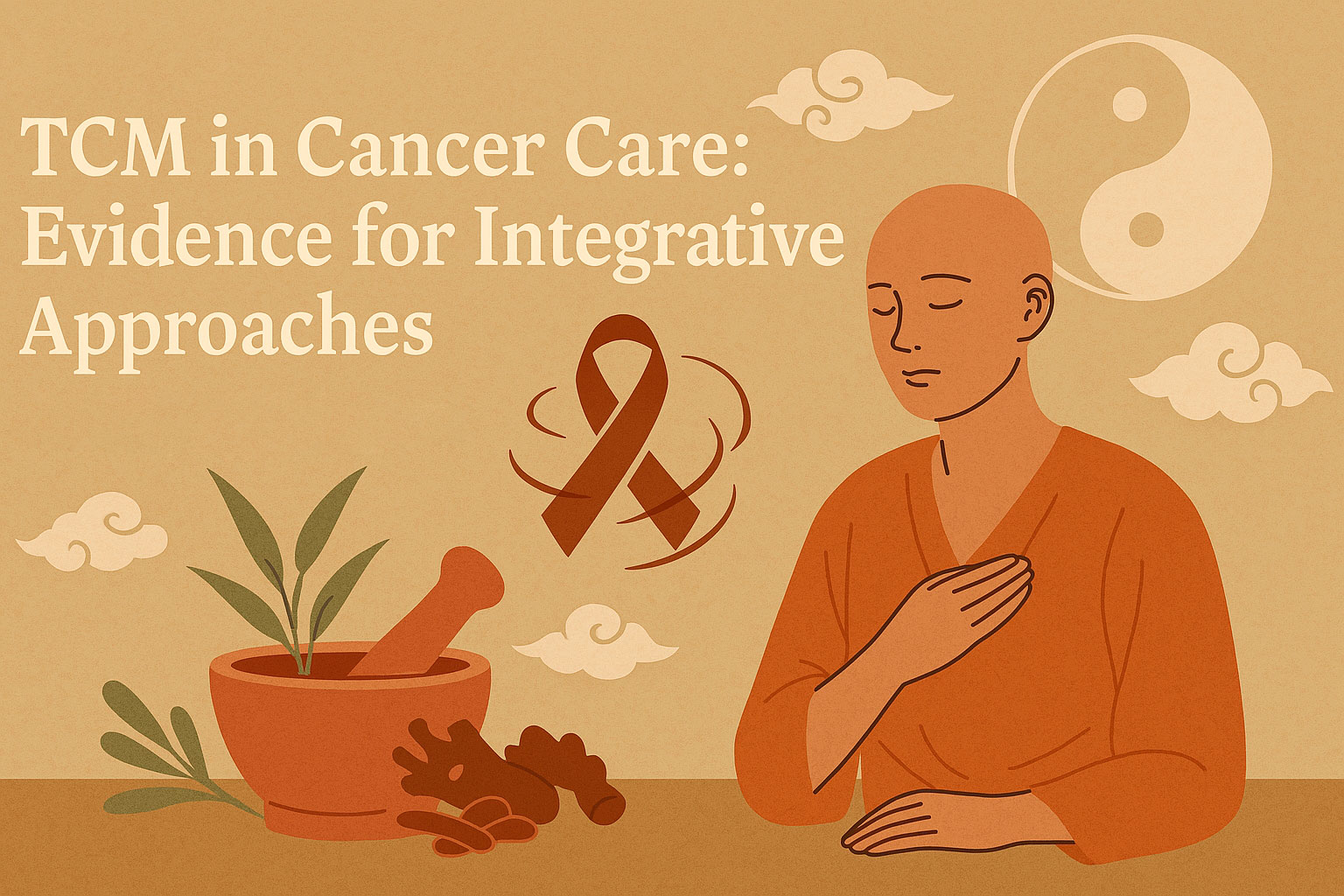Cancer treatment in the modern world has become increasingly multidisciplinary, combining surgery, chemotherapy, radiation, and targeted therapies. Alongside these mainstream interventions, Traditional Chinese Medicine (TCM) is gaining recognition as a valuable integrative approach — not as a replacement, but as a complement that can improve quality of life, immune resilience, and symptom management.
This article explores how TCM is applied in cancer care, and what current clinical research and evidence suggest about its benefits and safety.
🔶 The TCM Approach to Cancer
In TCM, cancer is understood not as a single disease, but as a manifestation of internal disharmony, often involving:
- Qi and Blood stagnation
- Accumulation of Phlegm and Dampness
- Heat toxins
- Deficiency of Zheng Qi (vital upright Qi)
🌿 TCM treatment principles in oncology include:
- Strengthening the body’s resistance (扶正)
- Eliminating pathogenic factors (祛邪)
- Harmonizing organs and supporting recovery
- Reducing side effects of conventional treatments
🔶 Clinical Applications of TCM in Cancer Care
| Application | TCM Strategy |
|---|---|
| Support during chemotherapy | Herbal formulas to protect digestion, reduce nausea and fatigue |
| Immune regulation | Tonic herbs like Huang Qi (Astragalus), Ling Zhi (Reishi) |
| Pain relief | Acupuncture and Blood-moving herbs |
| Fatigue and Qi deficiency | Spleen-boosting and Qi-tonifying herbs (e.g., Ren Shen, Dang Shen) |
| Emotional support | Shen-calming herbs and acupuncture points |
🔶 Evidence from Modern Research
✅ 1. Improved Quality of Life
- A meta-analysis published in Supportive Care in Cancer (2020) found that TCM significantly improved fatigue, appetite, sleep, and emotional well-being in cancer patients undergoing chemotherapy.
✅ 2. Immune Enhancement
- Herbs such as Astragalus membranaceus and Ganoderma lucidum have been shown to:
- Increase NK cell and macrophage activity
- Enhance T-cell-mediated responses
- Improve tolerance to chemo/radiotherapy
✅ 3. Reduced Side Effects
- Acupuncture has been shown in multiple randomized controlled trials to reduce:
- Chemotherapy-induced nausea and vomiting
- Radiation-induced dry mouth (xerostomia)
- Neuropathy and pain
✅ 4. Potential Antitumor Effects
- Some TCM formulas have demonstrated cytotoxic or anti-angiogenic effects in lab studies
- Examples: Huaier mushroom extract, Kushen (Sophora), Curcumin-containing herbs
Note: These are preliminary findings and should not replace standard treatments.
🔶 Safety and Integration
- TCM should be used under the guidance of a qualified practitioner, especially when combined with chemotherapy or immunotherapy.
- Potential interactions with pharmaceuticals must be monitored.
- Quality control of herbal products is essential (avoid self-prescription).
💡 Many major hospitals in China now have integrative oncology departments, combining Western treatment with personalized herbal and acupuncture protocols.
🔶 Case Example
A 55-year-old breast cancer patient undergoing chemotherapy:
- Experienced severe fatigue, dry mouth, and insomnia
- TCM intervention: Modified Shi Quan Da Bu Tang + acupuncture at SP6, ST36, HT7
- After 4 weeks: improved energy, sleep quality, and less gastrointestinal distress
🔶 Conclusion
The integration of TCM into modern cancer care reflects a growing recognition of its holistic, supportive, and symptom-focused benefits. While not a cure in itself, TCM offers valuable tools to enhance healing, reduce suffering, and restore quality of life in patients navigating the challenges of cancer treatment.
As research advances, the future of oncology may increasingly embrace this East-West synergy — combining molecular precision with energetic harmony.


发表回复